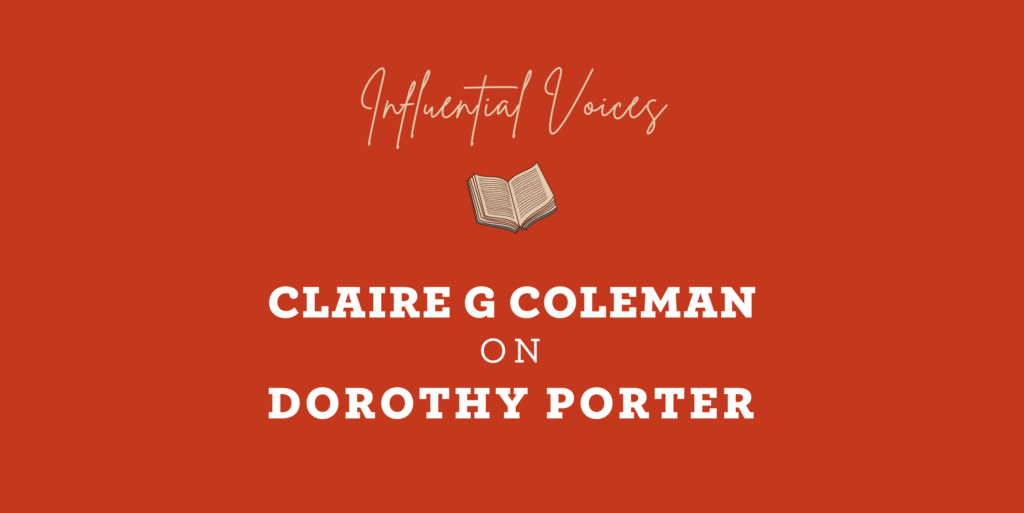
I admit, my first exposure to the work of Dorothy Porter was the film version of The Monkey’s Mask. The story gripped me at a time when I was beginning to lose faith in story, particularly in film. That the film was based on a verse novel blew my mind. Two days later, I caught the train from Reservoir to Melbourne, went to a bookshop and bought the book.
I read that book as I was waiting for the train back to Reservoir. I read that book as that train hurtled towards my home, so enthralled I nearly missed my stop. Totally transported I stepped from the train, walked to the nearest bench in the station, sat down and continued reading. I don’t know how long I sat there but I do know I did not get up, could not get up, until the book was finished.
There was something special and magical about her words. I had read poetry before, had even written some myself, but nothing like this. I am certain now that there are other poets that might have touched me the same way back then but it was Porter who had struck me, it was The Monkey’s Mask that had bitten me.
Three more Dorothy Porter verse novels emerged, and I consumed them, before I had my first chance to meet her. By a complicated coincidence, I happened to be in the vicinity for a reading and Q&A for El Dorado, Porter’s fifth verse novel. I listened to the reading and talk enthralled, asked a question about The Monkey’s Mask and then purchased El Dorado for my hero to sign. It was the first book I had ever asked an author to sign and is still a precious treasure to me.
As she signed my book, she thanked me for my question, said it was an excellent, intelligent and interesting question. I was so happy I nearly cried.
There was always something special and luminous in the stripped back verse of Porter. She could make words dance across the mind and sear themselves into your cerebellum, she could lift you up, she could tear your heart out in a way that made you say ‘thank you’ then beg for more. It has been said that the ultimate expression of art is when something is stripped back to its essence, in the way a painter can express a bird in flight in one stroke of the brush. Porter did that with every sentence.
She was the poet I aspired to be and believe I can never be.
The next time I saw Dorothy Porter, I was passing a café and there she was, on an outside table in the sunlight, drinking a beverage with a friend. I was too shy to walk up and say hello, called my girlfriend in a panic, freaking out because I wanted to meet this incandescent talent properly.
It was not long after that I learned that cancer had taken Australia’s greatest poet.
Although I have had poetry published, and have written more that has not been picked up, I am mostly a writer of prose and non-fiction. However, it is the dance of language I learned from Porter that I turn back to again and again. There is a reason some reviewers call my prose poetic.
I have never admired any work of literature as much as I admire the verse novels, the exquisite verse, the perfectly sculpted words, of Dorothy Porter.
About the Writer
Claire G Coleman is a Wirlomin Noongar woman. Her 2016 Black&Write Indigenous Writing Fellowship winning-novel Terra Nullius was published with Hachette Australia and was shortlisted for the Stella Prize. Terra Nullius is a speculative fiction novel that draws from Australia’s colonial history, describing a society split into different groups and exploring themes of oppression and survival.

